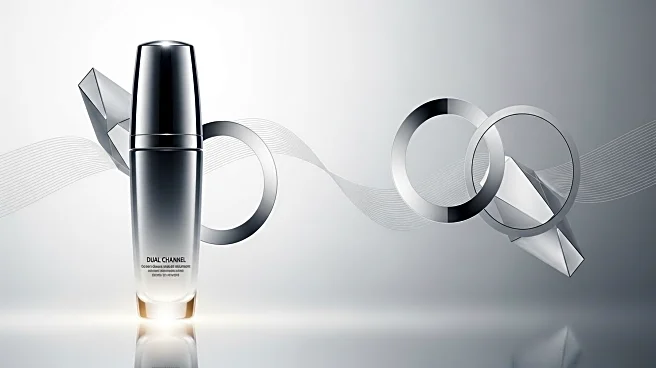What's Happening?
Generation X is significantly influencing the beauty and personal care market, representing 25% of total category spending, amounting to $1.5 trillion. According to recent data from NIQ, Gen X, along with Millennials, is driving substantial growth in this sector, even as Gen Z's spending shows signs of slowing. Gen X consumers are actively purchasing beauty products both online and in-store, with 85% buying online and 98.9% shopping in physical stores. This dual-channel engagement challenges the notion that Gen X is less digitally engaged than younger generations. Their spending is particularly strong in categories such as hair care and cosmetics, including face and lip products, body wash, moisturizers, and fragrances.
Why It's Important?
The influence of Gen X in the beauty industry highlights a significant growth opportunity for brands. Their purchasing habits reflect a preference for products that balance simplicity with benefits, legacy with innovation, and luxury with accessibility. This generation's dual-channel shopping behavior indicates a blend of traditional and modern consumer practices, making them a valuable target for beauty brands. As Gen X continues to drive market growth, brands that cater to their unique preferences and lifestyle needs stand to gain a competitive edge. Their loyalty and purchasing power are shaping the future of beauty, offering brands a chance to capitalize on this often underleveraged demographic.
What's Next?
Beauty brands are likely to focus on strategies that appeal to Gen X's layered lifestyles and evolving priorities. This may involve developing products that align with their desire for quality and innovation while maintaining accessibility. Brands might also enhance their online presence and in-store experiences to cater to Gen X's dual-channel shopping habits. As Gen X continues to influence market trends, companies that successfully engage this demographic could see increased brand loyalty and sales growth.
Beyond the Headlines
Gen X's impact on the beauty industry extends beyond immediate sales figures. Their engagement with both digital and physical shopping channels suggests a shift in consumer behavior that could influence marketing strategies across various sectors. Additionally, their preference for products that balance tradition with modernity may drive innovation in product development, encouraging brands to explore new formulations and packaging solutions. This generational influence could also lead to broader changes in how beauty brands approach sustainability and inclusivity.








